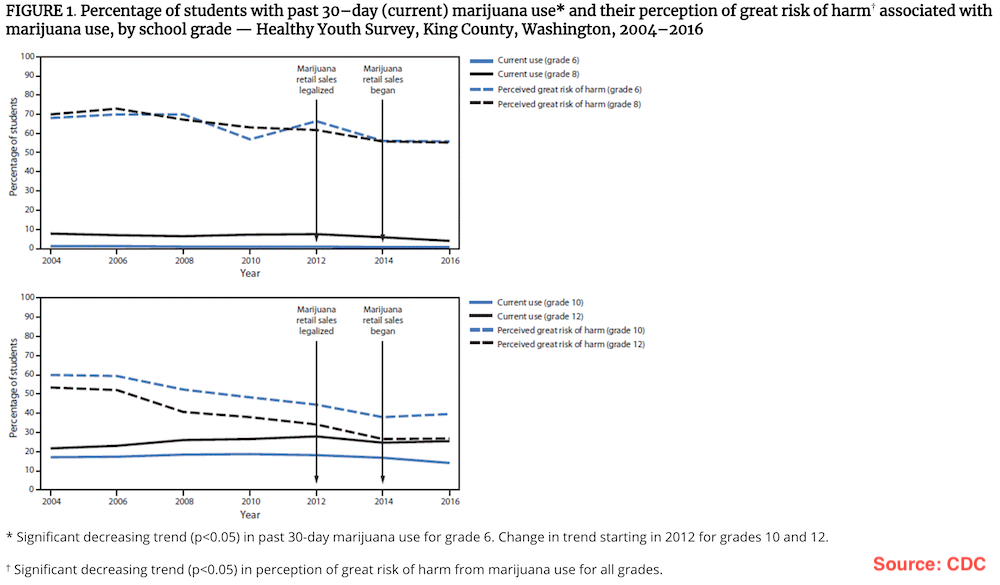
By Alex Berezow
Washington was one of the first states to legalize recreational marijuana. One of the arguments against it was the claim that legalization would make it easier for marijuana to fall into the hands of teenagers. Hence, we would see an increase in pot use among these young people.
It was certainly a plausible argument. Although I personally voted in favor of legalization in the state, I did acknowledge the likelihood that more teens would probably try pot as a result. But the critics and I were wrong. New data from the CDC show the exact opposite.
The percent of children and teenagers in King County (the Greater Seattle area) determined to be "current" users (defined as having consumed marijuana within the past 30 days) decreased among most age groups after 2012, the year in which Washington voted to legalize pot.
This isn't an aberration. In July, a study published in JAMA Pediatrics concluded that legalization was associated with an 8% reduction in the odds of teen marijuana use. Why?
It's not exactly clear, but two reasons seem plausible. First, as CNN explains, stores (but not drug dealers) check IDs when they sell marijuana, which may make it more difficult for minors to acquire it. (Of course, this assumes that many drug dealers went out of business.)
Second, legalization likely took away some of the mystique associated with marijuana. Teenagers can be rebellious and are often attracted to things they know they shouldn't do. But smoking a joint is hardly taboo anymore, especially when it's given the green light by several different states. If it's no longer considered rebellious, maybe it's no longer attractive to teens.
There may be a lesson here for e-cigarettes. These vaping devices may be perceived by teenagers as the latest act of rebellion. If so, that could mean that banning them (or banning certain flavors) may inadvertently and perversely increase their appeal. It's something worth pondering before rushing into policy changes.

No comments:
Post a Comment